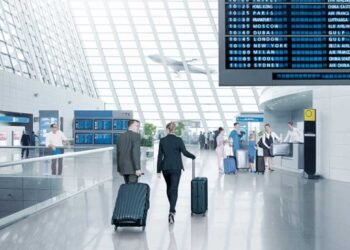Have you ever considered how your daily commute influences not just where you go, but who you become? The methods we choose for getting from place to place don’t merely transport our bodies; they fundamentally shape our perspectives, relationships, and life experiences in ways we rarely acknowledge.
The Psychology of Movement
Different modes of transportation create distinct mental states and social experiences. These daily transportation experiences accumulate over time, subtly influencing our personalities and worldviews. Regular public transport users often become more comfortable with diversity and unexpected social interactions.
The pace of our chosen transportation also affects our relationship with time itself. Fast travel can make us impatient with slower processes, while leisurely journeys teach us to appreciate gradual discovery and serendipitous encounters.
Community Connections Through Mobility
Transportation choices profoundly impact our social networks and community engagement. Neighborhoods designed around walking and cycling foster spontaneous interactions between residents. Car-dependent suburbs can create isolation despite physical proximity to neighbors.
The infrastructure supporting different transportation modes creates distinct community cultures. Areas with robust public transit develop vibrant street life and mixed-use development. Regions built around automobile access often feature sprawling commercial districts and residential subdivisions that limit casual social encounters.
Personal Identity and Travel Choices
Our transportation preferences both reflect and shape our personal identities. Motorcycle enthusiasts often value freedom, adventure, and mechanical appreciation. When life circumstances require relocating or extended travel, services that transport vehicles Edinburgh to other cities enable people to maintain these important aspects of personal identity across geographic boundaries.
Public transit advocates frequently prioritize environmental sustainability and urban community engagement. Luxury car owners might emphasize status and comfort, while practical compact car drivers often value efficiency and reliability above other considerations.
Economic and Social Mobility
Transportation access directly correlates with economic opportunity and social mobility. Communities with limited transport options often struggle with unemployment and reduced access to education, healthcare, and cultural activities. Reliable, affordable transportation can transform individual life trajectories and entire neighborhood economies.
The relationship between transportation and opportunity is particularly evident in how cities develop over time. Areas with excellent transport connections attract investment, jobs, and residents, while poorly connected regions may experience economic decline despite other advantages.
Technology Reshaping Travel Culture
Digital connectivity is revolutionizing how people experience travel time. Smartphones transform commute time into productive work periods or social interaction opportunities. Navigation apps alter our relationship with geographic knowledge and spontaneous exploration.
Ride-sharing services are blurring traditional boundaries between private and public transportation, creating new social norms around shared mobility and stranger interactions.
The Future of Living in Motion
As transportation technology continues evolving, our lifestyles will adapt accordingly. Electric vehicles may reduce the environmental guilt associated with car ownership. Autonomous vehicles could transform commute time into leisure or work time, fundamentally altering work-life balance expectations.
Understanding these connections between movement and lifestyle helps us make more intentional choices about how we want to live, work, and connect with our communities.












